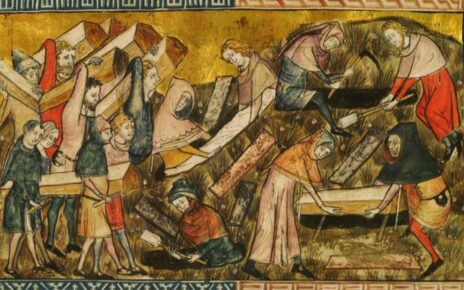Save articles for later
Add articles to your saved list and come back to them any time.
A tax on gambling is pouring an extra $70 million a year into Racing NSW’s already-bulging coffers, prompting a fresh push for the thoroughbred regulator to face the same scrutiny as other quasi-government organisations.
Racing NSW’s income has skyrocketed over the past 10 years, with one of the most lucrative new funding streams involving the Point of Consumption Tax (POC), introduced by the Coalition government in early 2019.
Figures given to parliament by NSW Racing Minister David Harris show Racing NSW’s share of the tax was $29.3 million in the 2019-20 financial year, swelling to $39.4 million and then $44.9 million. With changes introduced in 2022-23, it hit $70 million.
“The funding is likely to continue to grow with the underlying trends in the wagering market, namely the increasing market share of corporate operators and online wagering,” the Treasury review said.
Former state auditor-general Tony Harris described the statutory authority’s lack of oversight as unfathomable given it has more than half a billion dollars in state assets and manages about $340 million of state revenues.
At the 11th hour on Thursday night, the Minns government abandoned controversial legislation to extend the term of Racing NSW chair Russell Balding rather than support amendments that would have subjected the organisation to greater oversight, including that of the auditor-general.
(From left) Russell Balding, Racing NSW head Peter V’landys, Premier Chris Minns, and racing identities John Messara and Katie Page.Credit: Fiona Bianchinotti
The vote also split the Coalition, with some shadow ministers opposing shadow cabinet’s decision to push for more oversight.
Former One Nation MP Mark Latham, who supports more scrutiny of Racing NSW given the amount of money, regulations and Crown land the organisation handles, said he had not seen so much fuss about a single issue in years.
In parliament, Latham described Racing NSW chief executive Peter V’landys as “one of the most powerful men we have ever seen in NSW”, and described the controversy over the chair’s tenure as a proxy for “a debate about [V’landys] and how much power … should be centralised in the hands of one man.”
V’landys, who has been chief executive of Racing NSW for almost 20 years, and chair of the Australian Rugby League Commission since 2019, has previously said he is “not as powerful as everyone thinks”.
The Point of Consumption Tax requires betting service providers to pay a 15 per cent tax on gross profit from all bets made in NSW, including online bets made with interstate bookmakers, to ensure the state gets its share of wagering income (other states introduced similar taxes).
The government agreed to share some of this money with the racing industry, which includes thoroughbred (Racing NSW), greyhound and harness racing. At first the industry got about one-fifth of the tax income, and 70 per cent of that money went to Racing NSW.
The Treasury review found that even in its first six months, the POC tax was the main driver of Racing NSW’s revenue growth.
The Coalition government increased the tax from 10 per cent to 15 per cent in the middle of last year and boosted the industry’s cut to 33 per cent.
V’landys said this money was not taxpayer funds but rather a tax on revenue, and racing’s share was compensation for the industry’s inability to increase its race fields fee.
Racing NSW was created by an act of parliament. The only state oversight is the appointment of board members. It is not answerable to the corruption watchdog, the auditor-general, or parliamentary processes, although it is subject to freedom of information laws.
Animal Justice Party MP Emma Hurst wants Racing NSW spending to be scrutinised at a parliamentary inquiry.Credit: Janie Barrett
Harris called on the government to heed calls for increased accountability, saying he was puzzled about why there was so little, and so much resistance. “The downside is that things will be disclosed that they don’t want disclosed,” he said.
The Crime Commission and NSW Police both deal with sensitive matters but have oversight, while other agencies dealt with confidential commercial arrangements. “That Racing NSW is exempt from these accountability measures is unfathomable,” Harris said.
Emma Hurst from the Animal Justice Party will call for a parliamentary inquiry into the industry’s use of taxpayer money. “The fact the government would tank its own bill rather than allow a bare minimum of accountability for the NSW horse racing industry is very telling,” she said.
V’landys said Racing NSW was in competition with racing bodies in other states, unlike other quasi-government organisations, and none of those had that level of government control. “To do so puts Racing NSW on an uneven playing field,” he said.
He said he would “absolutely … attend any inquiry to correct the misinformation and outright lies said about Racing NSW during the debates on this bill”.
A spokeswoman for Racing Minister David Harris said the Coalition’s proposed oversight reforms were “untested”.
During negotiations, the Labor government floated changes such as a review of the act and an annual estimates-style questioning process. The spokeswoman did not answer a question about whether those reforms were still being considered.
“Racing NSW is – and should remain – an independent body that is not under the control or direction of the NSW government,” she said.
Start the day with a summary of the day’s most important and interesting stories, analysis and insights. Sign up for our Morning Edition newsletter.
Most Viewed in National
From our partners
Source: Read Full Article




